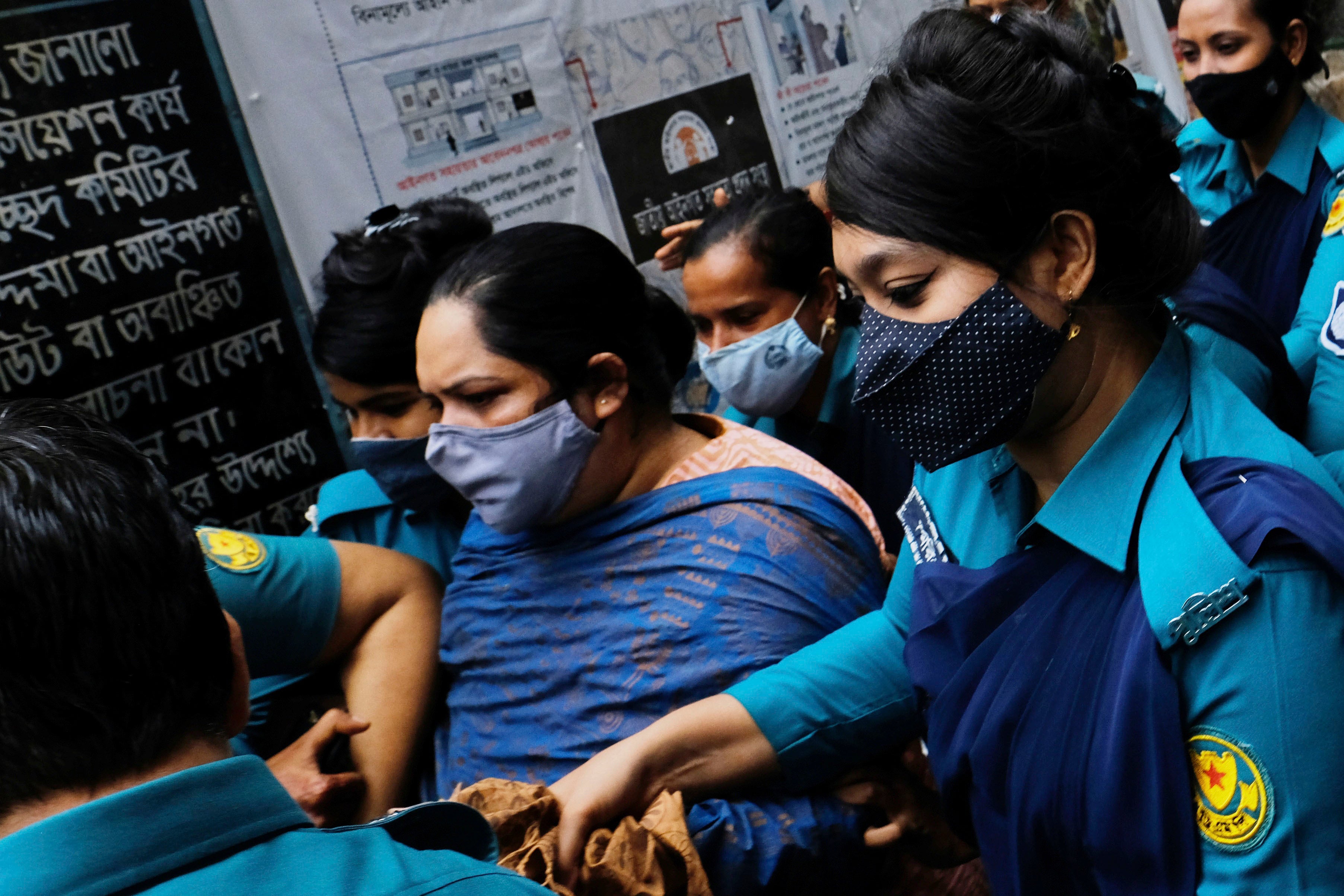Bangladeshi journalist known for unearthing graft gets bail
A court in Bangladesh has awarded conditional bail to a journalist known for her strong reporting on official corruption amid protests at home and abroad calling for her release

Your support helps us to tell the story
From reproductive rights to climate change to Big Tech, The Independent is on the ground when the story is developing. Whether it's investigating the financials of Elon Musk's pro-Trump PAC or producing our latest documentary, 'The A Word', which shines a light on the American women fighting for reproductive rights, we know how important it is to parse out the facts from the messaging.
At such a critical moment in US history, we need reporters on the ground. Your donation allows us to keep sending journalists to speak to both sides of the story.
The Independent is trusted by Americans across the entire political spectrum. And unlike many other quality news outlets, we choose not to lock Americans out of our reporting and analysis with paywalls. We believe quality journalism should be available to everyone, paid for by those who can afford it.
Your support makes all the difference.A court in Bangladesh on Sunday awarded conditional bail to a journalist known for her strong reporting on official corruption amid protests at home and abroad calling for her release.
Rozina Islam, a senior reporter for the leading Prothom Alo newspaper, has been held in detention since her arrest on Monday.
Her lawyer, Ehsanul Haque Shomaji, said Islam must surrender her passport before bail is granted.
Prosecution lawyer Abdullah Abu did not object to the bail request, and both sides told reporters that Magistrate Baki Billah mentioned in his order that mass media play a supporting role in democracy.
Islam was arrested after she allegedly used her cellphone without permission to photograph documents related to government negotiations to buy coronavirus vaccines, while she waited in the room of an official involved in the process, according to case documents seen by The Associated Press.
She faces charges of violating the colonial-era Official Secrets Act, which carries a possible death penalty. Media and human rights groups criticized the arrest and demanded her unconditional release.
Bangladesh Foreign Minister A.K. Abdul Momen on Thursday regretted the arrest and said Islam would get a fair justice.
Several of Islam's hard-hitting reports on corruption involving the Ministry of Health and others have drawn attention to the millions of dollars spent on procuring health equipment to deal with the pandemic.
Her family said Islam was held for more than five hours on Monday in the room of a personal assistant of the secretary of the Ministry of Health. Her sister said Islam was physically and mentally harassed before she was handed over to police.
“Bangladesh authorities should produce evidence of wrongdoing or immediately release Rozina Islam and stop arresting journalists for doing their job, which is also to highlight governance flaws,” said Brad Adams, Asia director of the Human Rights Watch
“Instead of locking up critics, encouraging a free press should be central to the government’s strategy to strengthen health services in combatting the pandemic,” he said.
The New York-based watchdog said at least 247 journalists were reportedly subjected to attacks, harassment and intimidation by state officials and others affiliated with the government in 2020. More than 900 cases were filed under the Digital Security Act, with nearly 1,000 people charged and 353 detained, many of them journalists, it said.